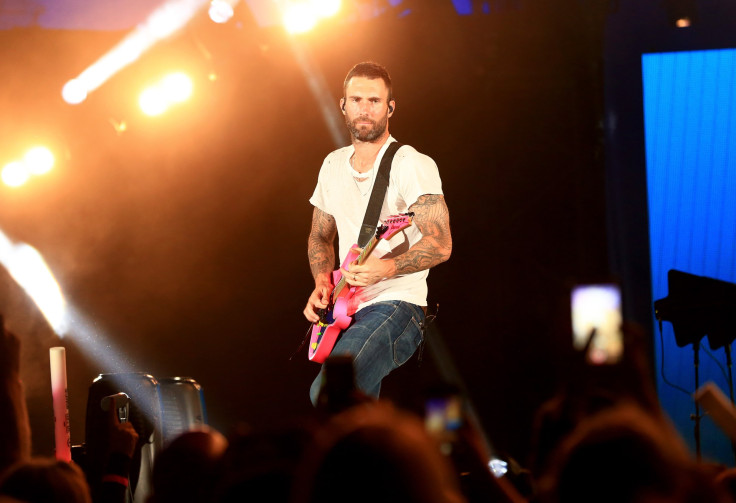‘The Voice’ Coach Adam Levine’s ‘Songland’ Project Moves Forward After Serious Legal Issue Comes To Light At NBC

While “The Voice” continues into the next rounds of Season 10, one of its most popular coaches is getting ready to debut his own music competition series. However, the new show had a bit of a legal snafu over the weekend that prompted NBC to change the language of its initial deal with artists who wish to apply for Adam Levine’s “Songland.”
It was previously revealed that Levine would executive produce the show along with “The Voice” executive producer Audrey Morrissey and Grammy Award-winning songwriter and record producer Dave Stewart. The Hollywood Reporter describes “Songland” as an opportunity for everyday songwriters to pitch their original work to some of the brightest minds and biggest producers in the business. However, over the weekend it was revealed that this might not necessarily be the golden opportunity for the little guy in the music industry.
According to the Wrap, NBC changed a key part of the language of the application contract that all those who wish to participate in the show must agree to. Previously the contract read that NBCUniversal would retain ownership of every songwriter’s submitted work, forcing the artist to waive his or her rights to any and all royalties that may result from the network’s use of their songs. Since the restricting contract came to light, the network has since changed the language so that it has ownership of only the submissions of those songwriters who are eventually accepted onto “Songland.”
The previously restrictive nature of the contract came to light after entertainment lawyer Wallace E.J. Collins wrote a blog post on LinkedIn in which he expressed his concern over the application, which he said several of his clients had brought to his attention.
“This is by far one of the most onerous such television contest submission agreements I have encountered. There is no warning of what the contract entails until the final part of the submission application, and what they are offering is crippling for songwriters,” Collins wrote. “Most songwriters make their life’s savings off of just a few big hits, and to be required to give away your best work like this for free is quite extreme.”
In fairness to NBC, Collins noted that although the contract is very heavy-handed and potentially dangerous to amateur songwriters, such broad legal terminology is relatively common. Normally, he says, one side would draw up a contract and it would be up to the other side’s lawyers to remove some of the more egregious language. However, there is no opposing legal team in the case of a reality music show application, making this a “contract of adhesion,” or one in which only one party has the power to set terms.
Luckily for those interested in getting involved with Levine’s new show, they can now submit their song without fear that NBC will both reject them and capitalize on their work. In fact, the issue of copyrights is now at the top of the application website’s frequently asked questions section, which explains that artists will not have to give up any portion of their rights if they aren’t accepted on the show.
“However, if you are selected to participate in the program, you will have to enter into further agreements or sign other documents with producer or other third parties regarding the rights to your song,” the site reads.
© Copyright IBTimes 2024. All rights reserved.






















